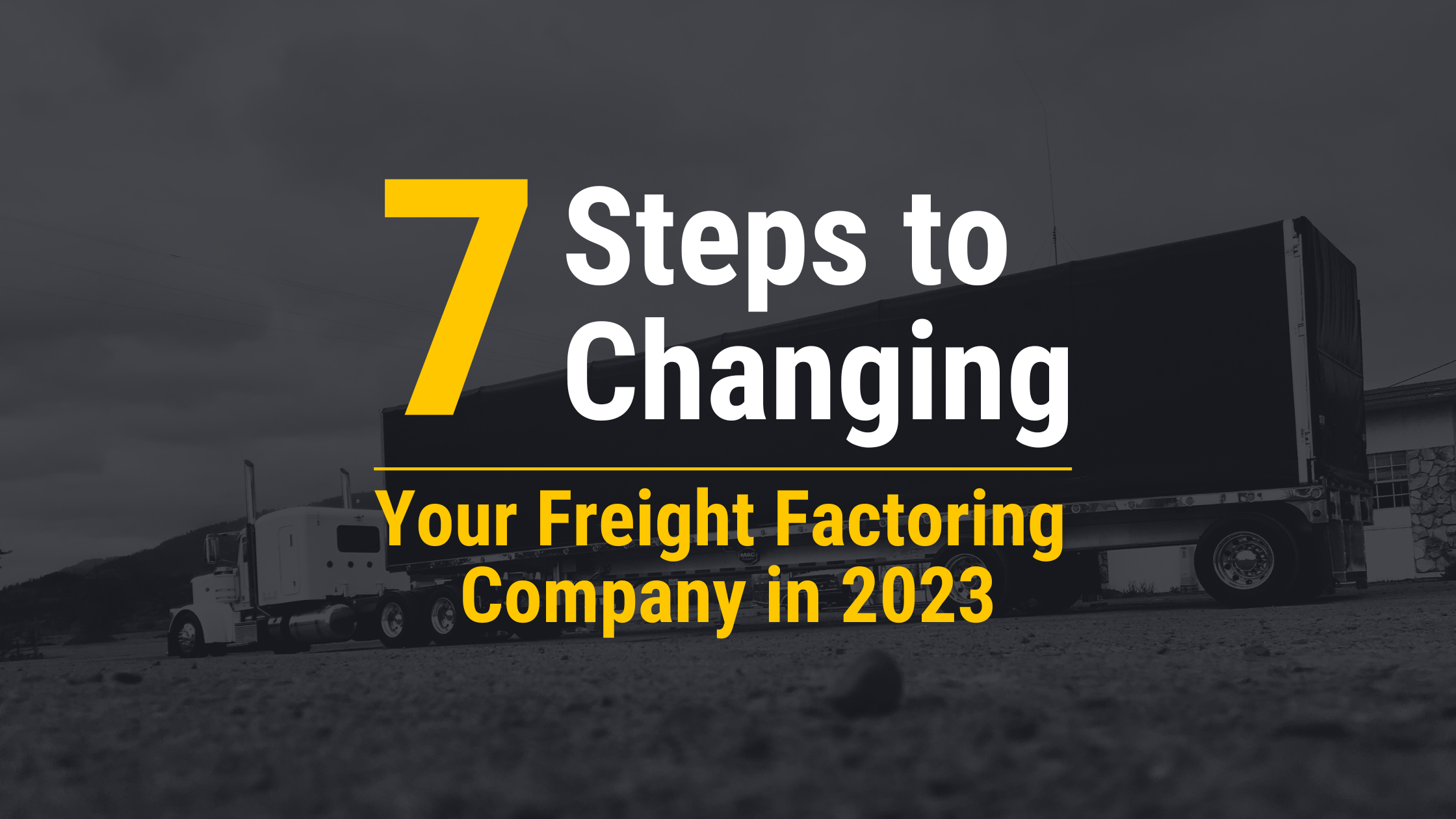Switching freight factoring companies may seem like a daunting task, but benefits like lower costs or an improved level of service can make it worth the time and effort. By planning carefully and paying attention to the details, the process of changing freight factoring companies can be both seamless and painless.
Ready to Switch Freight Factoring Companies? Start Here.
These seven steps can help you plot out your course if you’re thinking about switching factoring companies.
1. Check Your Current Factoring Contract
The first thing you need to do when you’re considering switching factoring companies is to carefully review your current factoring contract. Check for how much notice they require you to give before terminating your contract, how they want you to give that notice, and any documentation they may require, along with terms, fees, and potential penalties associated with canceling your contract before the term is up.
2. Find a New Freight Factoring Company That Meets Your Needs
Part of switching to a new factoring company is finding the right one. Research companies with your business needs in mind and consider things like reputation, costs and fee structure, contract terms, payment speed, industry experience, customer reviews, and additional services like fuel cards and discounts you may have access to by doing business with the new company. Don’t be afraid to ask plenty of questions or ask for an example of the terms they might offer you.At Express Freight Finance, we offer the flexibility to build your own factoring program, with competitive rates and flexible contracts, Instant Pay, huge fuel discounts and lane data to help you reduce deadhead miles and negotiate better rates. If you want to learn more click here or call 877-697-0605.
3. Figure Out How Much It’s Going to Cost You to Switch
Switching factoring companies may require you to pay fees to your old factoring company and/or startup costs to the new company, so you must weigh whether the costs of switching will be allayed by potential savings or improved level of service. Understanding the exact cost of switching will help you decide whether it’s the right move for your business right now.
This is also a great time to consider the overall costs that a potential new company will charge, including fees and rates. You can then compare how much factoring services will cost you to the benefits you’ll get from switching, such as better service and improved cash flow. We offer a no cost, no obligation contract review to help guide you through the decision making process. You can email your contract to onboarding@expressfreightfinance.com as well as your contact information or call us at 877-698-0605.
4. Give Your Current Factoring Company Notice
Once you’re sure you’re ready to change freight factoring companies and you’ve got a good idea of the new company you’ll be using, it’s time to give your old company notice, and it usually needs to be done in writing. Be sure that you stick to the notice period outlined in your contract and adhere to any other stipulations in the contract, like documentation requirements. Typical notice periods are 30 days or more, so don’t wait too long to give notice of termination before your contract renews.
5. Send Outstanding Invoices to Your New Freight Factoring Company
You’re bound to have outstanding invoices when you switch factoring companies, so those invoices will need to be passed on to the new company. Typically, you can sign off with the old company to release invoices directly to the new company, depending on the old company’s policy. This process is often referred to as a ‘buyout’, and you’ll likely be charged a small percentage of the invoice totals (typically 1%–1.5%) by the new company to take them over.
6. Sign Your New Factoring Contract
Now that you’ve made your way out of your old factoring contract, it’s time to sign a new one. Pay close attention to the terms and rate structure being offered, including fees assessed, interest rates, contract duration, recourse or non-recourse factoring, and additional services offered. Make sure that all terms seem in line with what was presented to you, and ask questions if you’re not sure.
7. Inform Your Customers of the Switch
Be sure to let each customer know that you’ve switched factoring companies. Make sure you communicate clearly with your customers about how and where they need to pay invoices now that you’ve signed with a new freight factoring company to ensure timely payments, and be clear about when they need to start paying invoices to the new company. Stay available to answer any questions your customers may have about the transition.
Conclusion
While switching freight factoring companies can seem like a long process, the benefits of hiring a new company may be worth it, especially if you’re not happy with the way your current factoring company is performing or you need access to more services to streamline your business. Take it step by step, pay attention to the details, and changing freight factoring companies can positively impact your business.







